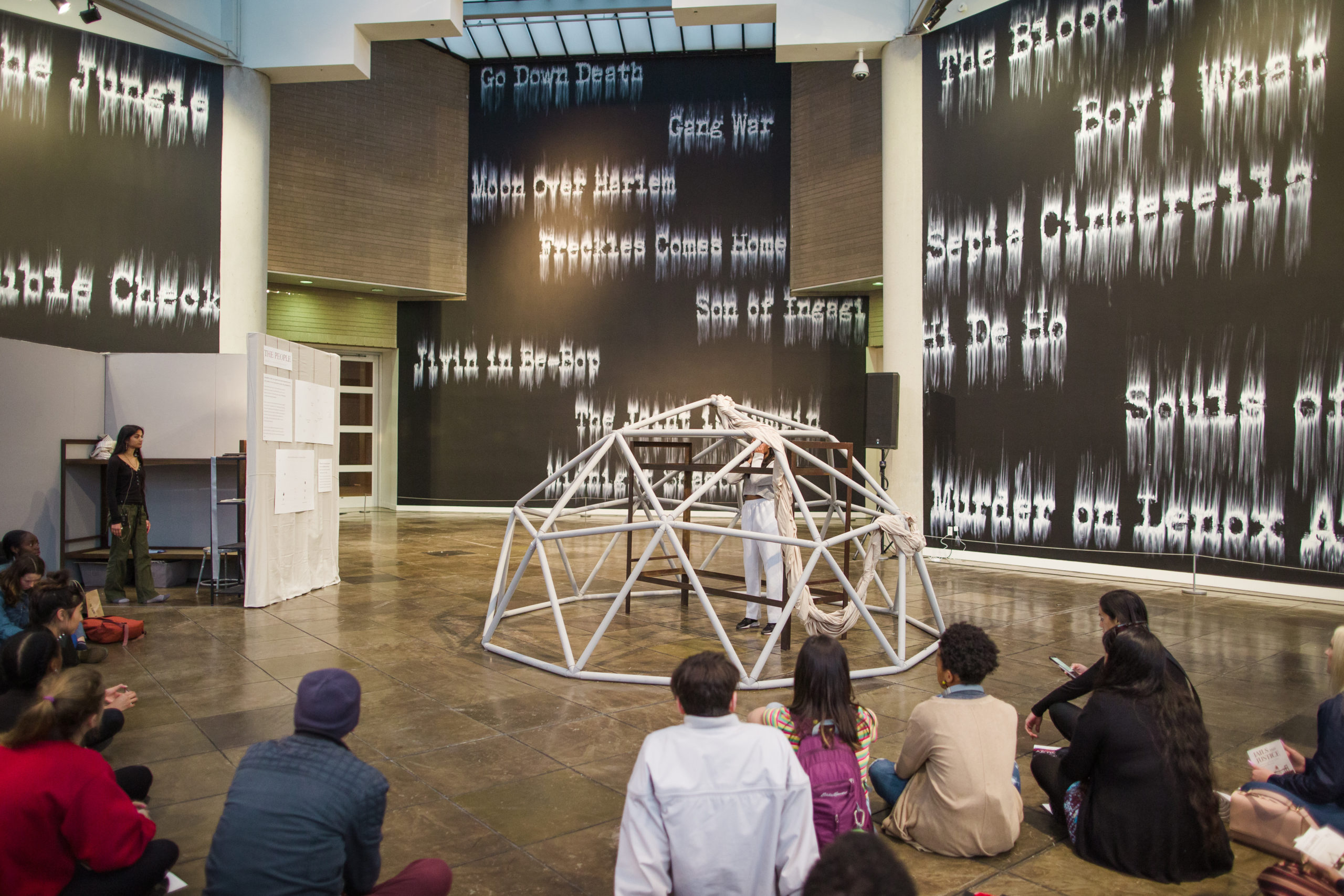It is hard to believe that only eight months ago I announced the launch of the USC Arts in Action program borne out of the Provost’s Arts and Humanities Initiative. It’s been a busy few months for this program that supports USC arts activities for positive social change and gives USC artists a chance to collaborate with our Los Angeles neighbors. Below are just a few of the recent USC Arts in Action achievements:
- Awarded funding to six faculty-and partner-designed projects that span a range of topics including hip-hop choreography by K-12 students, veterans exploring experiences of conflict through Greek drama, and a cohort of trained therapeutic medical clowns delivering play-based therapy to foster youth counselors.
- Established or supported partnerships with 16 organizations and 11 USC schools. Collaborations with K-12 schools, non-profits, museums, and collectives. All of the projects have featured the combined expertise of faculty and/or students from at least two USC schools.
- Launched artsinaction.usc.edu. The home page includes information about all of the projects, access to Request for Proposals, links to partners, and more.
- Self-produced two launch projects in partnership with five of USC’s art schools. Artists Addressing Homelessness and Jails and Justice: Rethinking Public Safety through the Arts were co-designed and executed with Skid Row’s Urban Voices Project and Black Lives Matter Los Angeles, among other community groups, and featured USC students in collaboration with community performers.
Regarding that last point, actress and producer Gina Belafonte, who directed a new theatrical work Theatre of the Oppressed for the Jails and Justice collective presentation, said the public performance was an important vehicle for deeper understanding and dialogue as it relates to the ongoing issues of incarceration in America and, in particular, in California.
“The arts open hearts and minds to new understandings of old problems. They help audiences develop empathy and mercy,” Belafonte said.
Jails and Justice brought together students from USC Kaufman School of Dance and the USC School of Architecture and performers from USC’s Institute for Theatre and Social Change and Black Lives Matter Los Angeles to collectively rethink and explore incarceration and racism.
Funmilola Fagbamila, one of the original organizers of the Black Lives Matter Movement and adjunct professor of Pan African Studies at Cal State LA, is an artist and activist, who hosted the Jails and Justice event and co-directed one of the theatrical works. She said she wanted to participate in the project to highlight the devastation and hypocrisy of the modern criminal justice system.
“Inspired by the Black Arts Movement of the Black Power Era, this collective moves within the tradition of conceptualizing, creating, and highlighting artistic works made to contribute to the actualization of a just and liberated world for Black people,” Fagbamila said. “There has been no revolutionary justice movement in history of this world that I am aware of that did not have powerfully moving art to fuel the fire of the resistance and to feed the spirit of those advocating for justice.”
In addition to the transformative power of the program, Arts in Action is first and foremost a community effort. The program challenges us to turn artistic energy outward to engage and partner with the communities and neighborhoods of Los Angeles that we all call home.
“Theatre and social change at USC School of Dramatic Arts has a had a 25-year history working with dozens of grass-roots organizations on issues ranging from homelessness, poverty, income inequality, renters rights, social justice and prison reform, racial justice, gender justice and trans rights, drug and alcohol recovery, and increased efficacy of programs in schools, hospitals, and social service agencies here in Los Angeles and around the world,” said Brent Blair, USC School of Dramatic Arts Associate Professor of Theatre Practice and Head of Theatre and Social Change. “Without community, there is no theatre and social change. Fostering community co-participating is extremely crucial not only to maintain a sense of postcolonial ethics of shared governance and artistic creation, but to transform people who participate from artistic consumers to artistic creators.”
As a leading research institution, we have a duty and commitment to confront 21st Century challenges and offer solutions to the multifaceted problems of our time. A program like USC Arts in Action is just one way we will begin to confront and find solutions to the challenges facing our University and surrounding communities.
–Michael W. Quick, June 13, 2019
